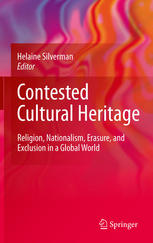

Most ebook files are in PDF format, so you can easily read them using various software such as Foxit Reader or directly on the Google Chrome browser.
Some ebook files are released by publishers in other formats such as .awz, .mobi, .epub, .fb2, etc. You may need to install specific software to read these formats on mobile/PC, such as Calibre.
Please read the tutorial at this link: https://ebookbell.com/faq
We offer FREE conversion to the popular formats you request; however, this may take some time. Therefore, right after payment, please email us, and we will try to provide the service as quickly as possible.
For some exceptional file formats or broken links (if any), please refrain from opening any disputes. Instead, email us first, and we will try to assist within a maximum of 6 hours.
EbookBell Team

5.0
100 reviewsCultural heritage is material – tangible and intangible – that signifies a culture’s history or legacy. It has become a venue for contestation, ranging in scale from protesting to violently claimed and destroyed. But who defines what is to be preserved and what is to be erased? As cultural heritage becomes increasingly significant across the world, the number of issues for critical analysis and, hopefully, mediation, arise. The issue stems from various groups: religious, ethnic, national, political, and others come together to claim, appropriate, use, exclude, or erase markers and manifestations of their own and others’ cultural heritage as a means for asserting, defending, or denying critical claims to power, land, and legitimacy. Can cultural heritage be well managed and promoted while at the same time kept within parameters so as to diminish contestation? The cases herein rage from Greece, Spain, Egypt, the UK, Syria, Zimbabwe, Italy, the Balkans, Bénin, and Central America.